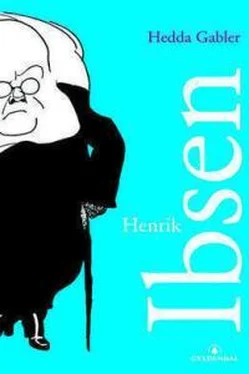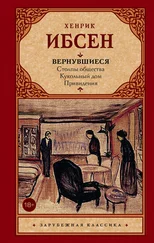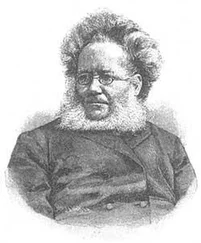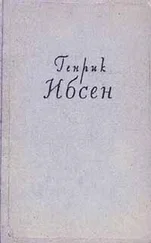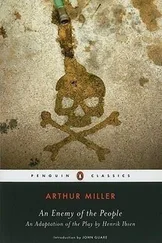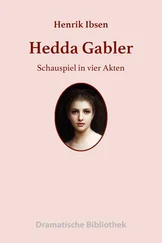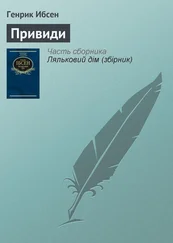MRS. ELVSTED.
How could you, then—! Did not the child belong to me too?
HEDDA.
[Almost inaudibly.] Ah, the child—
MRS. ELVSTED.
[Breathing heavily.] It is all over then. Well well, now I will go, Hedda.
HEDDA.
But you are not going away from town?
MRS. ELVSTED.
Oh, I don't know what I shall do. I see nothing but darkness before me. [She goes out by the hall door.
HEDDA.
[Stands waiting for a moment.] So you are not going to see her home, Mr. Lovborg?
LOVBORG.
I? Through the streets? Would you have people see her walking with me?
HEDDA.
Of course I don't know what else may have happened last night. But is it so utterly irretrievable?
LOVBORG.
It will not end with last night—I know that perfectly well. And the thing is that now I have no taste for that sort of life either. I won't begin it anew. She has broken my courage and my power of braving life out.
HEDDA.
[Looking straight before her.] So that pretty little fool has had her fingers in a man's destiny. [Looks at him.] But all the same, how could you treat her so heartlessly.
LOVBORG.
Oh, don't say that I was heartless!
HEDDA.
To go and destroy what has filled her whole soul for months and years! You do not call that heartless!
LOVBORG.
To you I can tell the truth, Hedda.
HEDDA.
The truth?
LOVBORG.
First promise me—give me your word—that what I now confide in you Thea shall never know.
HEDDA.
I give you my word.
LOVBORG.
Good. Then let me tell you that what I said just now was untrue.
HEDDA.
About the manuscript?
LOVBORG.
Yes. I have not torn it to pieces—nor thrown it into the fiord.
HEDDA.
No, no—. But—where is it then?
LOVBORG.
I have destroyed it none the less—utterly destroyed it, Hedda!
HEDDA.
I don't understand.
LOVBORG.
Thea said that what I had done seemed to her like a child–murder.
HEDDA.
Yes, so she said.
LOVBORG.
But to kill his child—that is not the worst thing a father can do to it.
HEDDA.
Not the worst?
LOVBORG.
Suppose now, Hedda, that a man—in the small hours of the morning—came home to his child's mother after a night of riot and debauchery, and said: "Listen—I have been here and there—in this place and in that. And I have taken our child with—to this place and to that. And I have lost the child—utterly lost it. The devil knows into what hands it may have fallen—who may have had their clutches on it."
HEDDA.
Well—but when all is said and done, you know—this was only a book—
LOVBORG.
Thea's pure soul was in that book.
HEDDA.
Yes, so I understand.
LOVBORG.
And you can understand, too, that for her and me together no future is possible.
HEDDA.
What path do you mean to take then?
LOVBORG.
None. I will only try to make an end of it all—the sooner the better.
HEDDA.
[A step nearer him.] Eilert Lovborg—listen to me.—Will you not try to—to do it beautifully?
LOVBORG.
Beautifully? [Smiling.] With vine–leaves in my hair, as you used to dream in the old days—?
HEDDA.
No, no. I have lost my faith in the vine–leaves. But beautifully nevertheless! For once in a way!—Good–bye! You must go now—and do not come here any more.
LOVBORG.
Good–bye, Mrs. Tesman. And give George Tesman my love.
[He is on the point of going.
HEDDA.
No, wait! I must give you a memento to take with you.
[She goes to the writing–table and opens the drawer and the pistol–case; then returns to LOVBORG with one of the pistols.
LOVBORG.
[Looks at her.] This? Is this the memento?
HEDDA.
[Nodding slowly.] Do you recognise it? It was aimed at you once.
LOVBORG.
You should have used it then.
HEDDA.
Take it—and do you use it now.
LOVBORG.
[Puts the pistol in his breast pocket.] Thanks!
HEDDA.
And beautifully, Eilert Lovborg. Promise me that!
LOVBORG.
Good–bye, Hedda Gabler. [He goes out by the hall door.
[HEDDA listens for a moment at the door. Then she goes up to the writing–table, takes out the packet of manuscript, peeps under the cover, draws a few of the sheets half out, and looks at them. Next she goes over and seats herself in the arm–chair beside the stove, with the packet in her lap. Presently she opens the stove door, and then the packet.
HEDDA.
[Throws one of the quires into the fire and whispers to herself.] Now I am burning your child, Thea!—Burning it, curly–locks! [Throwing one or two more quires into the stove.] Your child and Eilert Lovborg's. [Throws the rest in.] I am burning—I am burning your child.
The same rooms at the TESMANS'. It is evening. The drawing– room is in darkness. The back room is light by the hanging lamp over the table. The curtains over the glass door are drawn close.
HEDDA, dressed in black, walks to and fro in the dark room. Then she goes into the back room and disappears for a moment to the left. She is heard to strike a few chords on the piano. Presently she comes in sight again, and returns to the drawing–room.
BERTA enters from the right, through the inner room, with a lighted lamp, which she places on the table in front of the corner settee in the drawing–room. Her eyes are red with weeping, and she has black ribbons in her cap. She goes quietly and circumspectly out to the right. HEDDA goes up to the glass door, lifts the curtain a little aside, and looks out into the darkness.
Shortly afterwards, MISS TESMAN, in mourning, with a bonnet and veil on, comes in from the hall. HEDDA goes towards her and holds out her hand.
MISS TESMAN.
Yes, Hedda, here I am, in mourning and forlorn; for now my poor sister has at last found peace.
HEDDA.
I have heard the news already, as you see. Tesman sent me a card.
MISS TESMAN.
Yes, he promised me he would. But nevertheless I thought that to Hedda—here in the house of life—I ought myself to bring the tidings of death.
HEDDA.
That was very kind of you.
MISS TESMAN.
Ah, Rina ought not to have left us just now. This is not the time for Hedda's house to be a house of mourning.
HEDDA.
[Changing the subject.] She died quite peacefully, did she not, Miss Tesman?
MISS TESMAN.
Oh, her end was so calm, so beautiful. And then she had the unspeakable happiness of seeing George once more—and bidding him good–bye.—Has he not come home yet?
HEDDA.
No. He wrote that he might be detained. But won't you sit down?
MISS TESMAN.
No thank you, my dear, dear Hedda. I should like to, but I have so much to do. I must prepare my dear one for her rest as well as I can. She shall go to her grave looking her best.
HEDDA.
Can I not help you in any way?
MISS TESMAN.
Oh, you must not think of it! Hedda Tesman must have no hand in such mournful work. Nor let her thought dwell on it either—not at this time.
HEDDA.
One is not always mistress of one's thoughts—
MISS TESMAN.
[Continuing.] Ah yes, it is the way of the world. At home we shall be sewing a shroud; and here there will soon be sewing too, I suppose—but of another sort, thank God!
GEORGE TESMAN enters by the hall door.
HEDDA.
Ah, you have come at last!
TESMAN.
You here, Aunt Julia? With Hedda? Fancy that!
MISS TESMAN.
I was just going, my dear boy. Well, have you done all you promised?
TESMAN.
No; I'm really afraid I have forgotten half of it. I must come to you again to–morrow. To–day my brain is all in a whirl. I can't keep my thoughts together.
Читать дальше
